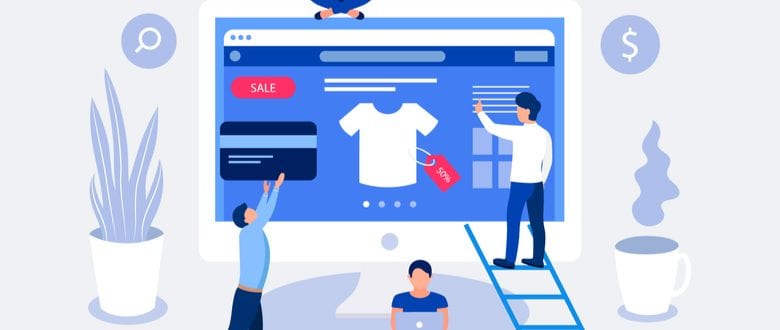So you’ve done your research, consulted with the experts and now you’re ready to dive into the wonderful world of ecommerce with the help of the Shopify platform. Congrats! This is an exciting opportunity to transform your brick and mortar business into a digital powerhouse. But, there are a few things, both good and bad, to keep in mind before building your first Shopify store.
Shopify is Fully Hosted With SSL Security
Don’t worry, this is good news!
One of the major benefits of building your first Shopify store is that it is free to register and host .myshopify.com domains. This means that, as long as you host your URL through a Shopify domain, you won’t have to factor in additional operating expenses like server costs or the price of buying, registering and hosting domains. Along with this, you’re guaranteed an SSL certificate through Shopify which comes with a number of benefits:
- Your website will be easier to discover through improved SEO
- You and your customer’s data will be more secure through encryption
- Your store will generate more conversions through increased trust
The only downside to this is that, if you own your own domain already or want to explore other hosting options, you’ll need to pay additional fees to use external gateways while also using Shopify.
While first time shop owners may be hesitant to pay any additional fees, we encourage them to consider that domain ownership and registration adds significant professional credibility, increases brand visibility and improves online searchability of an online store. Additionally, for established ecommerce sites hoping to explore Shopify’s features, these external gateway fees are a necessary cost to ensure a seamless transition to the new platform.
Perfect for Retail, Not for B2B
While online-only stores are becoming more and more popular, it’s not uncommon to operate both a brick and mortar location and an online storefront. Fortunately, Shopify offers an integrated retail point of sales (POS) system that provides many advantages for businesses:
- All of your tools (and inventory) are housed under one roof
- In-store and online purchases are tracked in real-time simultaneously
- Strategic reporting tools provide advanced unified analytics
- Streamlined user interface and individual staff permissions makes management simple
For all of the benefits provided by its retail POS platform, it’s important to note that Shopify doesn’t offer robust B2B solutions. In general, the platform is designed around B2C commerce so this is an important consideration for businesses that deal heavily with B2B commerce. It’s not impossible to run a B2B store through Shopify, but most of the exciting features will be of little to no use for your store.
No Free Lunch: Pay to Play
For all the useful features that Shopify offers, it’s understandable that it doesn’t offer any free plans. Depending on which plan you choose, Shopify can cost anywhere from $30 to $300 a month (though there is a free two week trial that hopeful business owners can use to test out the platform).
For most small businesses, the basic plan offers more than enough functionality to build a successful ecommerce store. But for bigger businesses or those with complex needs, the more expensive plans will provide greater customization, control and capabilities across more locations and staff members.
The free trial is a nice way of trying out some of what Shopify offers, but it’s important to note that for bigger stores, two weeks is likely not enough time to design, build and launch your new digital storefront. However, if business owners build their site through registered Shopify Partners, they do not have to pay any monthly service costs until the website is fully built and turned over to the business.
Building your site with the help of Shopify Partners allows businesses more time to create a fully-functioning ecommerce solution without the added pressure of mounting subscription fees. Since building a successful store is a delicate and tedious process that involves setting up inventory, managing fulfillment solutions and ultimately ensuring your customer’s user experience is designed in a way that facilitates higher conversion rate or sales, we generally recommend larger projects to be handled by Shopify Partners.
Should I Design My First Shopify Store Myself?
This depends on the scope of your business. It’s a good idea to peek around on their website and look at the features that are offered. This will give you an idea of what possibilities are available through Shopify integration. For example, if you don’t have a website already, you can build your first Shopify store to function as one (though it may not be as effective as a traditional WordPress website). Designing your store yourself is a good route for individuals looking to quickly start a small online shop that is relatively simple in scope.
But, if you already own a website, have a lot of products in your catalog or utilize a relatively complex sales process, then it’s best to partner with a competent web designer. With so many moving parts, a poorly designed Shopify store can actually hurt your business more than help.
As registered Shopify Partners with years of ecommerce experience, we’re fully equipped to build a successful online store tailored to match the needs of your business. If you’re ready to start your ecommerce website and capitalize on new digital markets, then contact us at Comit Developers.

